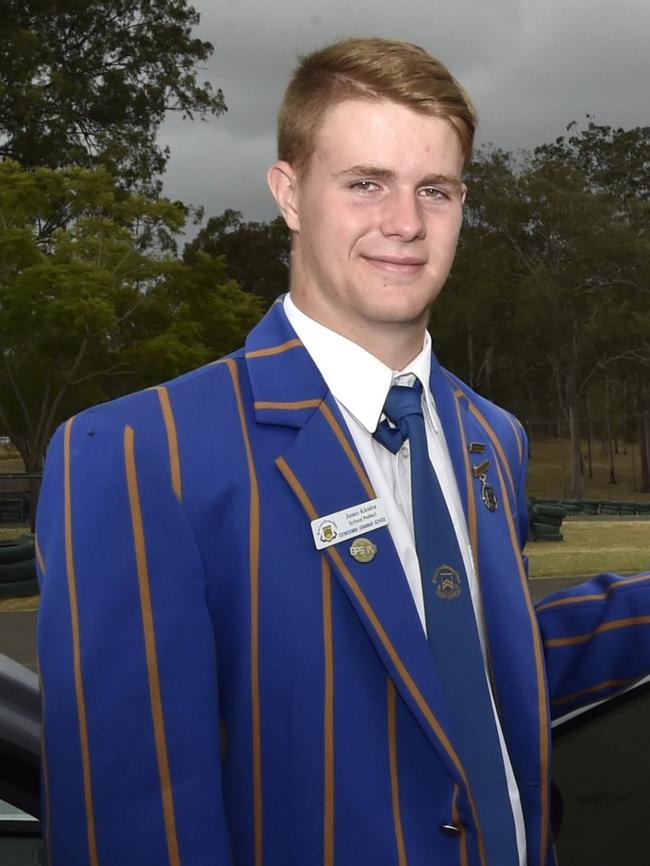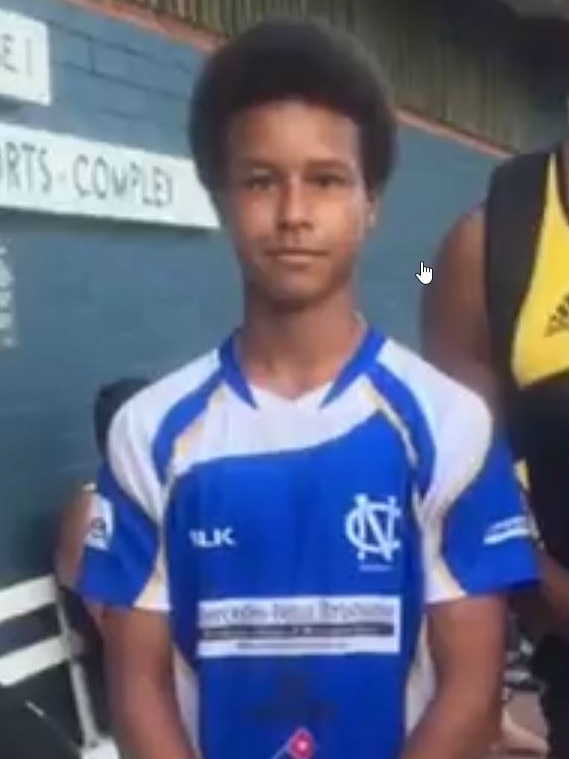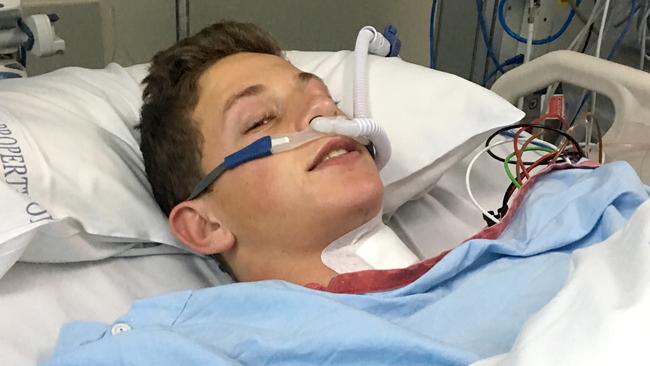Rugby Australia advised to implement ‘front row passport’
An investigation into the spate of injuries suffered by rugby players at GPS schools has recommended Rugby Australia implement a national safety framework, including a “passport” system employed in France.
GPS Rugby
Don't miss out on the headlines from GPS Rugby. Followed categories will be added to My News.
A THREE-month investigation into the spate of spinal injuries suffered by rugby players at GPS schools has recommended Rugby Australia implement a national safety framework, including a “front row passport” to assess and monitor players’ risk of injury.
Four serious spinal injuries to schoolboy athletes across the southeast in just under a month last year triggered the investigation to assess whether safety in the sport could be improved.
Rugby Australia organises summit with GPS headmasters
Brave Conor: I won’t let scrum accident define me
GPS rugby safety review the logical response to injuries
A panel found the injuries, to Toowoomba Grammar School students Oliver Bierhoff, 18, and James Kleidon, 17; Gregory Terrace’s Conor Tweedy, 16; and Nudgee College’s Alexander Clark, 15, to be unrelated and dissimilar.
Rugby Australia, Queensland Rugby Union and the GPS Association appointed the panel, chaired by James Bell QC and supported by former Wallaby Tim Horan, ex-Brisbane Grammar School headmaster Brian Short and GPS Ashgrove first grade coach Anthony Mathison.


Between September and December, the panel examined evidence provided by the injured players and their families, schools and the governing bodies of rugby in Queensland and Australia.
The findings, released today, recommended Rugby Australia design and implement across the country a best practice safe rugby framework, combining existing safety guidelines with initiatives to be trialled this year.
Chief among the initiatives is the launch of a “front row passport” accreditation scheme based on the model employed in French rugby.
The passport would assess the “physical development, motor competency and skill development of individual players to ensure that players have the requisite skills, health and critical competencies to minimise the risk of potential injury”, the report said.
The nine GPS schools were advised to consider changing “the way rugby is offered” at the schools to ensure they complied with the new best practice guidelines.

The report also recommended the schools review insurance cover to include risk of serious injury.
Finally, the schools were requested to “devise and resolve upon a serious injury protocol”.
Rugby Australia chief executive Raelene Castle pledged that the code would continue to support the schools and players as they recovered from their “unfortunate” injuries.
“The safety and welfare of our players is paramount to the game and the thoroughness of the process and the quality of the report that has been provided will be a blueprint for rugby competitions across Australia going forward,” Ms Castle said.
GPS Schools Association of Queensland chairman Peter Fullagar said the schools welcomed the panel’s report and would stand “shoulder-to-shoulder” with the sport’s governing bodies.
“We’ve established a GPS rugby review working group to step out the association’s response to the review’s recommendations and to ensure we support our schools as we implement the best practice safe rugby framework as quickly as possible ahead of the 2019 season,” Mr Fullagar said.
KEY RECOMMENDATIONS
■ A national safety framework, implemented by Rugby Australia
■ A ‘Front Row Passport’ accreditation scheme to assess physical development, motor competency and skill development of players
■ Change the way rugby is offered at GPS schools to ensure compliance with best practices
■ GPS schools should review their insurance policies to ensure it covers the risk of serious injury
■ Schools should devise a serious injury protocol


